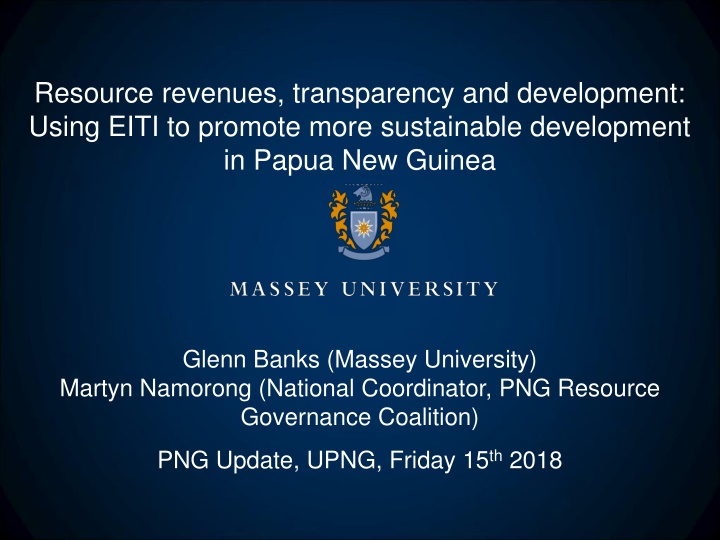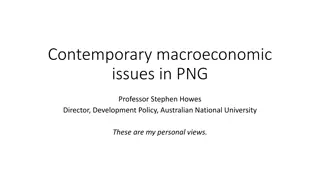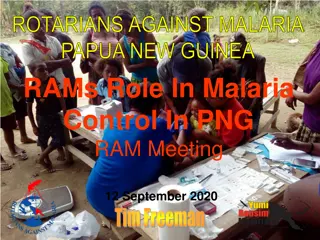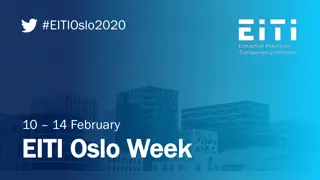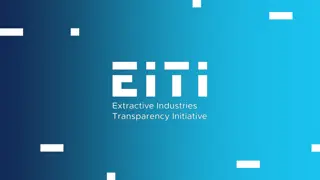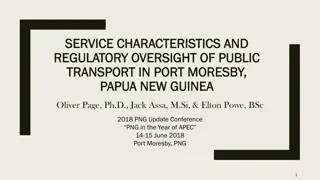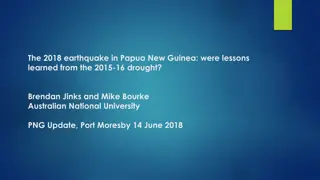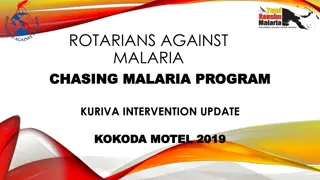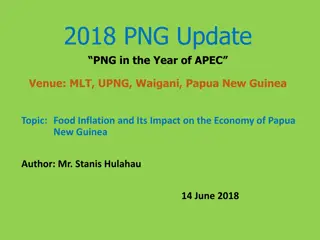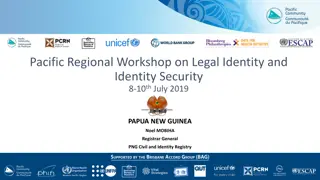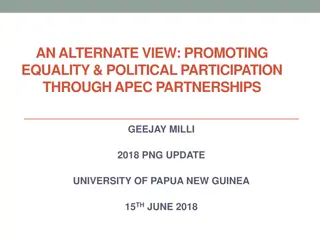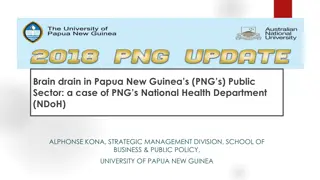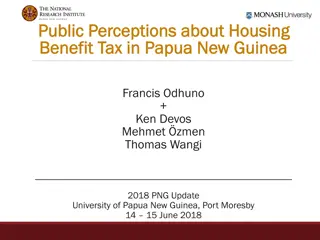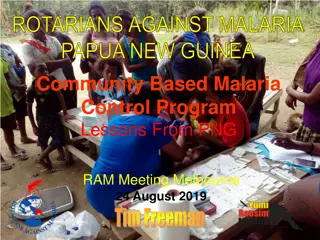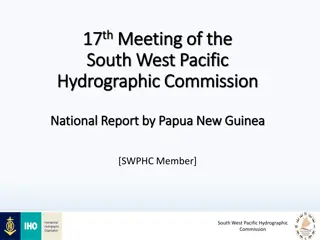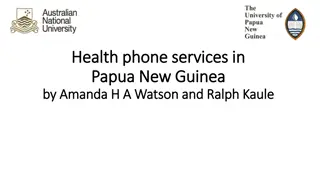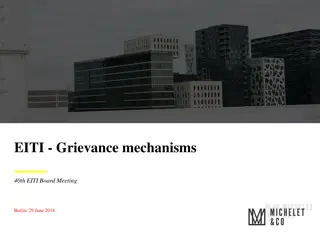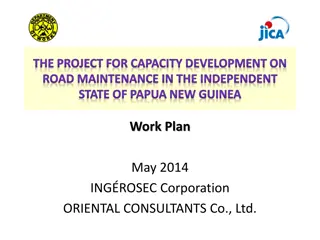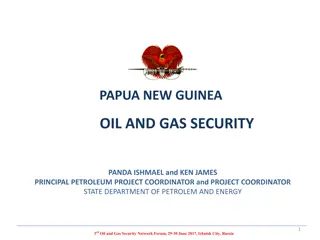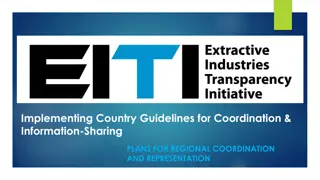Utilizing EITI for Sustainable Development in Papua New Guinea
Discussing the importance of the Extractive Industries Transparency Initiative (EITI) in promoting sustainable development in Papua New Guinea by enhancing transparency and accountability in the extractives sector. The presentation covers the overview of EITI, challenges, understanding revenue flows, and options for improvement, alongside insights on EITI implementation in PNG, challenges faced, and recommendations for better engagement.
Download Presentation

Please find below an Image/Link to download the presentation.
The content on the website is provided AS IS for your information and personal use only. It may not be sold, licensed, or shared on other websites without obtaining consent from the author.If you encounter any issues during the download, it is possible that the publisher has removed the file from their server.
You are allowed to download the files provided on this website for personal or commercial use, subject to the condition that they are used lawfully. All files are the property of their respective owners.
The content on the website is provided AS IS for your information and personal use only. It may not be sold, licensed, or shared on other websites without obtaining consent from the author.
E N D
Presentation Transcript
Resource revenues, transparency and development: Using EITI to promote more sustainable development in Papua New Guinea Glenn Banks (Massey University) Martyn Namorong (National Coordinator, PNG Resource Governance Coalition) PNG Update, UPNG, Friday 15th 2018
Aims of the presentation 1. Overview of EITI, its contribution and challenges 2. Using EITI to understand the type and nature of flows of revenue from the resources sector 3. Some options
Outline Introduction EITI What it is What it has done Challenges Resource Revenues 1975-2016 Flows and volatility Options
The Extractive Industries Transparency Initiative (EITI) The Extractive Industries Transparency Initiative (EITI) a global organisation established in 2002. Aim is to increase transparency and accountability in the extractives sector. Voluntary, non-binding system. Countries issue annual reports reconciling payments from the extractive industries to receipts by governments. Countries begin as candidate countries and once EITI deems them to be compliant, they become full members. To be compliant, need to meet standards regarding data collection, process, awareness, engagement, inclusion etc. USA pulling out, Exxon link
EITI in PNG EITI established in PNG in 2012. Four annual reports to date, latest covering 2016. Process overseen by a multi- stakeholder group (MSG). Compiled by an independent administrator, Ernst & Young. Heading towards full member status in 2019. Companies provide information on payments to government, checked against what government says it received. Provides significant new insights on the sector and its contribution.
Challenges for EITI in PNG Still quite early in process some parties still working out their reporting requirements and responsibilities. Recommendations in latest report: Reconciliation of differences Confirming which flows matters Some stakeholders not engaging Subnational payments SOEs ITCS mechanisms Oil and Gas licence transfers Reporting of social expenditure
Resource Revenue Volatility Volatility: boom and bust and back again 2006 and 2007 over K2billion in taxes and dividends to the State from the sector (exports K10bn) 2016 K320million (on exports of K20billion) Clear that State bears a disproportionate share of risk of price fluctuations
Significance of other revenue flows Largest flow from extractive industries to the state in 2016 was Group taxes = taxes on wages and salaries Represents 34% of total revenue flows from sector to state Least volatile flow Doesn t capture real value of mineral wealth
Infrastructure Tax Credit Scheme Diversion of part of government taxes in exchange for contribution towards infrastructure by companies, originally in areas affected by their operations Reduces State tax take (2016 K120m) Increases local development benefit in material sense buildings etc. Politicisation of TCS in recent years Question how come no taxes paid but significant credits?
Options going forward 1. Infrastructure Tax Credit Scheme reconciling and depoliticising 2. Calculation of full value of national share (procurement, wages etc) in addition to government share 3. Look to localising these additional flows a template for a broader National Content Plan; 4. National Strategy to develop and promote PNG as a Pacific Hub for gas and mining industry across the Pacific region
Thank You https://www.pngeiti.org.pg/
